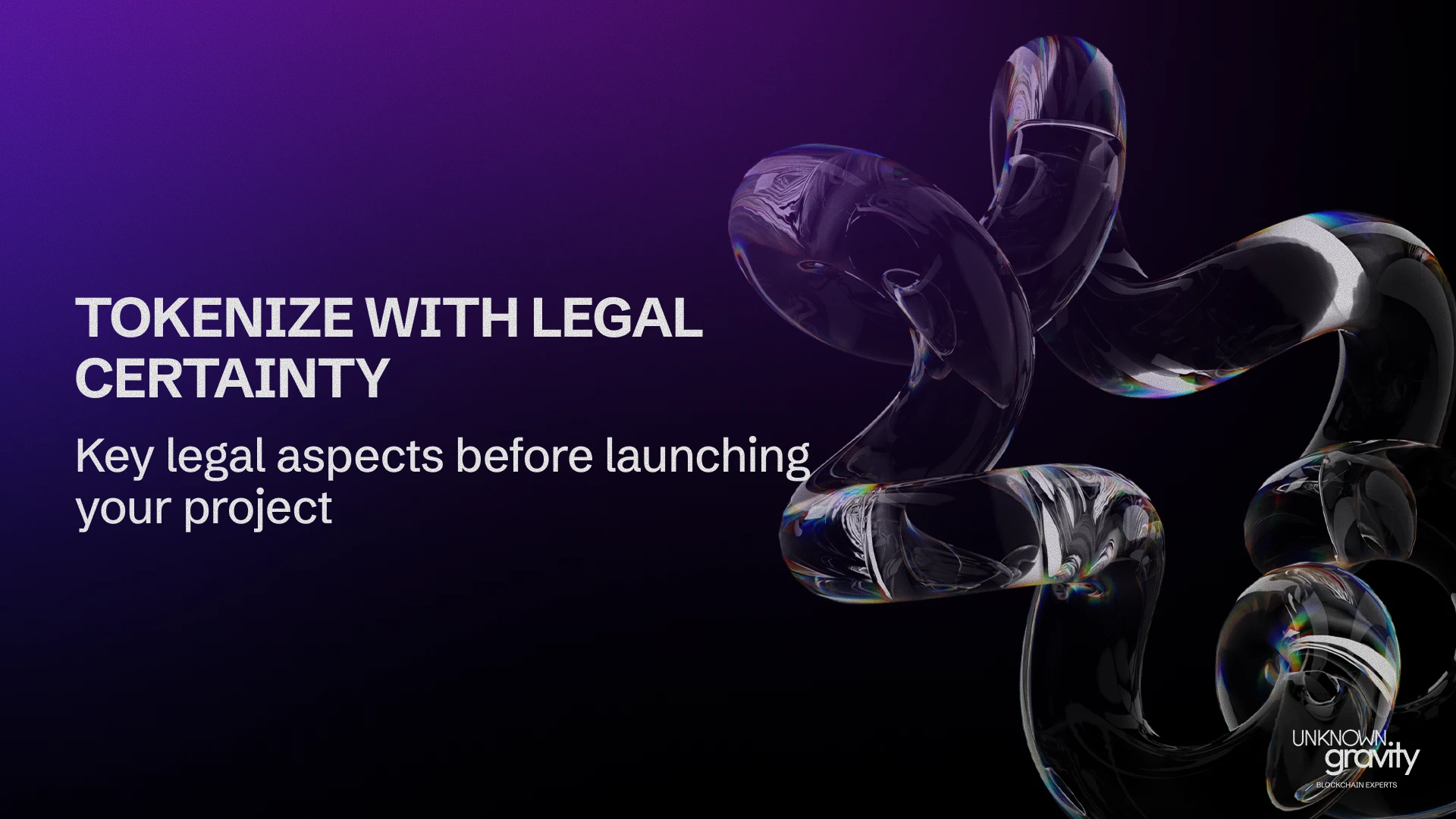Asset tokenization represents an unprecedented opportunity to modernize traditional sectors and facilitate access to investments.
However, in Spain and the European Union, the legal environment is clear and requires compliance with certain requirements to avoid sanctions and ensure the trust of users and investors.
Before embarking on a tokenization project, it is essential to know the European and Spanish regulatory frameworks that apply, in order to properly manage legal and operational aspects.
Why is it key to understand regulation in Spain and Europe to tokenize?
In Europe, tokenization can involve different types of tokens that fall under different financial, consumer protection and money laundering prevention regulations. In Spain, the CNMV (National Securities Market Commission) and the Banco de España oversee the issuance and commercialization of these digital assets, in line with the European Regulation.
Ignoring these frameworks can lead to:
- Administrative fines and economic sanctions.
- Blocking of operations and withdrawal from the market
- Reputational damage affecting trust and investment
Therefore, complying with regulations is an indispensable requirement for any serious project.
Main regulatory frameworks in Spain and the European Union
MiCA Regulation: The European Framework for Cryptoassets
El Markets in Crypto-Assets (MiCA) Regulation, which will come into force soon, is the first comprehensive European framework that regulates the issuance and provision of services related to cryptoassets.
Key aspects of MiCA
- It regulates token issuers and crypto service providers in all member states, including Spain.
- Define clear categories: utility tokens, asset-referenced tokens and e-money tokens.
- It requires authorization and registration for issuers and suppliers.
- It introduces transparency, governance and risk management requirements.
MiCA seeks to harmonize and provide legal security to the European blockchain ecosystem.
Spanish financial legislation: CNMV and Banco de España
In Spain, the CNMV oversees the issuance of securities and financial assets, including some tokens that are considered Security Tokens or financial instruments.
For its part, the Banco de España regulates aspects related to electronic money and digital financial activities, especially for tokens with payment or e-money functions.
Money Laundering Prevention (AML) and Know Your Customer (KYC)
The European Anti-Money Laundering Directive (AMLD5) requires strict AML/KYC controls to be implemented for platforms that operate with cryptoassets.
Obligations include:
- End user identification and verification.
- Suspicious transaction monitoring.
- Report to the authorities in case of illegal activities.
In Spain, the transposition of these regulations is supervised by the Financial Intelligence Unit (SEPBLAC).
Consumer Protection and Privacy
European regulations, especially the General Data Protection Regulation (GDPR), demand to guarantee the privacy of users and the responsible management of their personal data on any tokenization platform.
In addition, transparency and clarity in the communication of risks and conditions are mandatory to protect the consumer.
Good practices for tokenizing in compliance with the law in Spain and Europe
1. Legal consultancy specialized in fintech and blockchain law
From the design of the project, get advice from Spanish and European legal experts who understand both local and European regulations to avoid misinterpretations.
2. Clearly define the nature of the token
Evaluate if your token is a utility token, security token or stablecoin according to MiCA and Spanish legislation to apply the appropriate regime.
3. Implement robust KYC/AML policies
It integrates automated and auditable processes to comply with anti-money laundering regulations and avoid sanctions.
4. Ensure transparency and consumer protection
It publishes clear documentation in Spanish and other European languages, informing about risks, rights and conditions in accessible language.
5. Maintain constant regulatory oversight
European regulation is evolving; stay updated to adapt your project and anticipate changes.
Specific risks in Spain and Europe and how to avoid them
- Do not register the activity with CNMV or Banco de España when appropriate: It can result in sanctions and paralysis.
- Lack of adaptation to MiCA: Projects that do not contemplate the scope of this regulation are at risk of non-compliance.
- Not complying with data protection legislation (GDPR): Millionaire fines and reputational damage.
- Underestimate the AML/KYC obligation: Blocking accounts and serious fines for facilitating illegal activities.
Conclusion
Tokenizing assets in Spain and Europe is an opportunity, but only if it is done under rigorous and up-to-date compliance with the local and community regulatory framework.
The correct interpretation and application of MiCA, the regulations of the CNMV and Banco de España, as well as the AML and GDPR obligations, are the basis for a legally solid and reliable project.
At Unknown Gravity, we accompany companies and startups to navigate these legal and technical requirements, ensuring success and legal security in their blockchain projects.
















.webp)
.webp)





































.png)
.webp)
.webp)
.webp)
.webp)
.webp)
.webp)
.webp)
.webp)
.webp)
%20(1).webp)
.webp)
.webp)
.webp)

.png)
.png)
.png)



